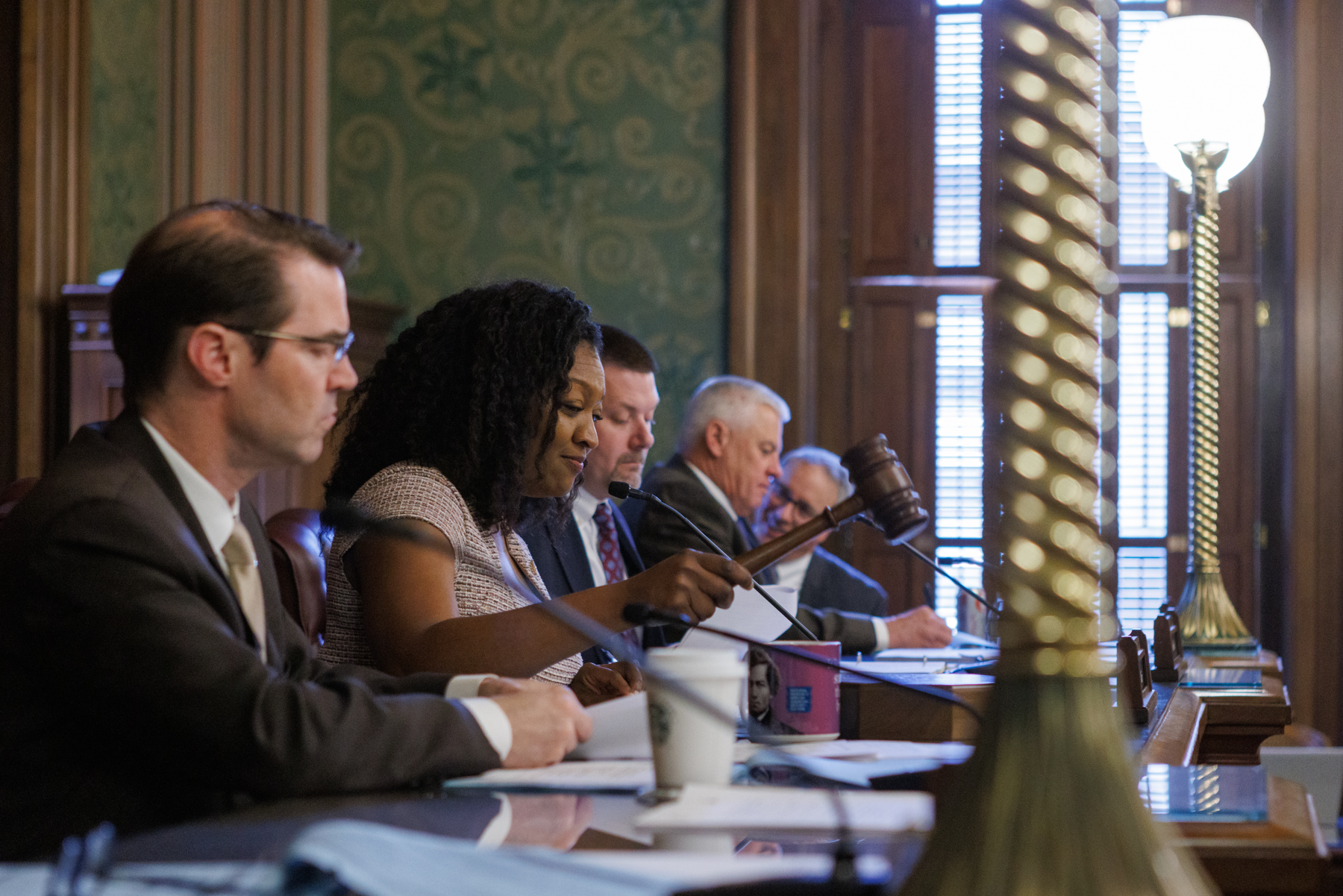Last year marked a significant milestone for Michigan Democrats as they capitalized on their first trifecta in 40 years to spearhead a transformative budget — directing vital resources into historically neglected sectors like infrastructure, education, and local communities. This comprehensive budget, encompassing various offices, departments, initiatives, projects and programs, follows an annual funding cycle, necessitating the State Legislature to craft a new budget each year.
Crafting this state budget is a collaborative effort involving negotiations between both legislative branches and the governor, resulting in a new state budget being signed into law each year to distribute funding to residents, schools, communities, businesses, local governments and more.
The Budget Process Begins
The budgetary process officially begins with the first Consensus Revenue Estimating Conference (CREC) in the second week of January during the preceding fiscal year. With two CRECs annually — one in January and another in May — these conferences set the stage for Michigan’s revenue forecast and subsequent budget deliberations. The January conference establishes the revenue forecast and signals the start of the budget process. The May conference provides updated fiscal information, which is used to make adjustments before the final passage of legislative appropriations bills.

Following the release of the January consensus estimate, the governor — typically in February — presents their executive budget recommendations to both the House and Senate. Gov. Whitmer presented her sixth budget proposal earlier this year.
With the governor’s budget recommendations in hand, the legislators may use it as a reference point as both chambers begin to craft their own versions of the state budget. Each chamber houses an appropriations committee, with Sen. Sarah Anthony currently serving as the Senate Appropriations Chair — the first Black female to hold this position in history — and Rep. Angela Witwer serving as the House Appropriations Chair. Within each Appropriations committee exists subcommittees, which help craft budget bills.

Sen. Sarah Anthony makes history as she presides over the Senate Appropriations Committee as its first Black woman Chair.
The Appropriations committees and subcommittees conduct hearings on the proposed budget recommendations and policies, allowing members to pose questions and propose amendments. Local leaders, stakeholders and other invested parties may also offer testimony in support of or against the proposed budget. First, the bills must pass out of the Appropriations subcommittees to then be considered by the full Appropriations committee. Once bills pass out of the Appropriations committee, they undergo floor votes in their respective chambers.
After a budget bill receives a passing vote on the floor of their chamber of origin, it undergoes a second floor vote in the opposite chamber. In other words, once the Senate has voted to pass their version of a budget bill, it will be transferred to the House for further deliberation and another floor vote. Similarly, House budget bills will be voted on in their own chamber before advancing to the Senate for another round of voting.
If there are discrepancies between the House and Senate versions, a conference committee convenes to resolve differences. A conference committee is a group formed to resolve differences between the House and Senate versions of a budget bill. Comprised of members from both chambers, it negotiates compromises on funding allocations and policy provisions. Once an agreement is reached, the compromised version is presented to both chambers for approval before being sent to the governor.
Making the Budget Official
Once a final version of the budget is passed by both chambers, the bill proceeds to the governor for signing. The governor holds line-item veto authority over appropriation bills, allowing for the approval of specific items while vetoing others. The Legislature may overturn any of the governor’s line-item veto with a vote of two-thirds of the total population of both chambers. in recent years, the budget has been passed in late June or early July and signed by the governor shortly thereafter, taking effect on October 1 of the same year.

Senate Majority Leader Winnie Brinks and Senate Appropriations Chair Sarah Anthony join Gov. Whitmer, Lt. Governor Gilchrist, members of the Michigan House of Representatives and local first responders in Wyandotte at the signing of a historic budget for Fiscal Year 2024.
Throughout the year, budget supplementals may be passed to amend the current state budget. Budget supplementals refer to additional appropriations or adjustments made to the existing budget after its initial passage. These supplementals are necessary when there are unforeseen expenses, changes in revenue projections or emerging needs that were not accounted for in the original budget.
Throughout the budgeting process, Michigan Senate Democrats have championed transformative, innovative and equitable investments that put Michigan residents first and delivered on real issues — like expanding access to affordable housing and nutritious food, ensuring workers receive fair pay and have access to job training programs, improving water quality, fixing roads and bridges, and so much more. Building upon the success of the ‘24 budget, Michigan Senate Democrats remain committed to collaborating with their legislative colleagues and the governor to continue crafting state budgets that prioritize investments in Michigan’s residents, fostering economic growth and supporting local communities.
Read more from the Michigan Senate Democrats at SenateDems.com/press.